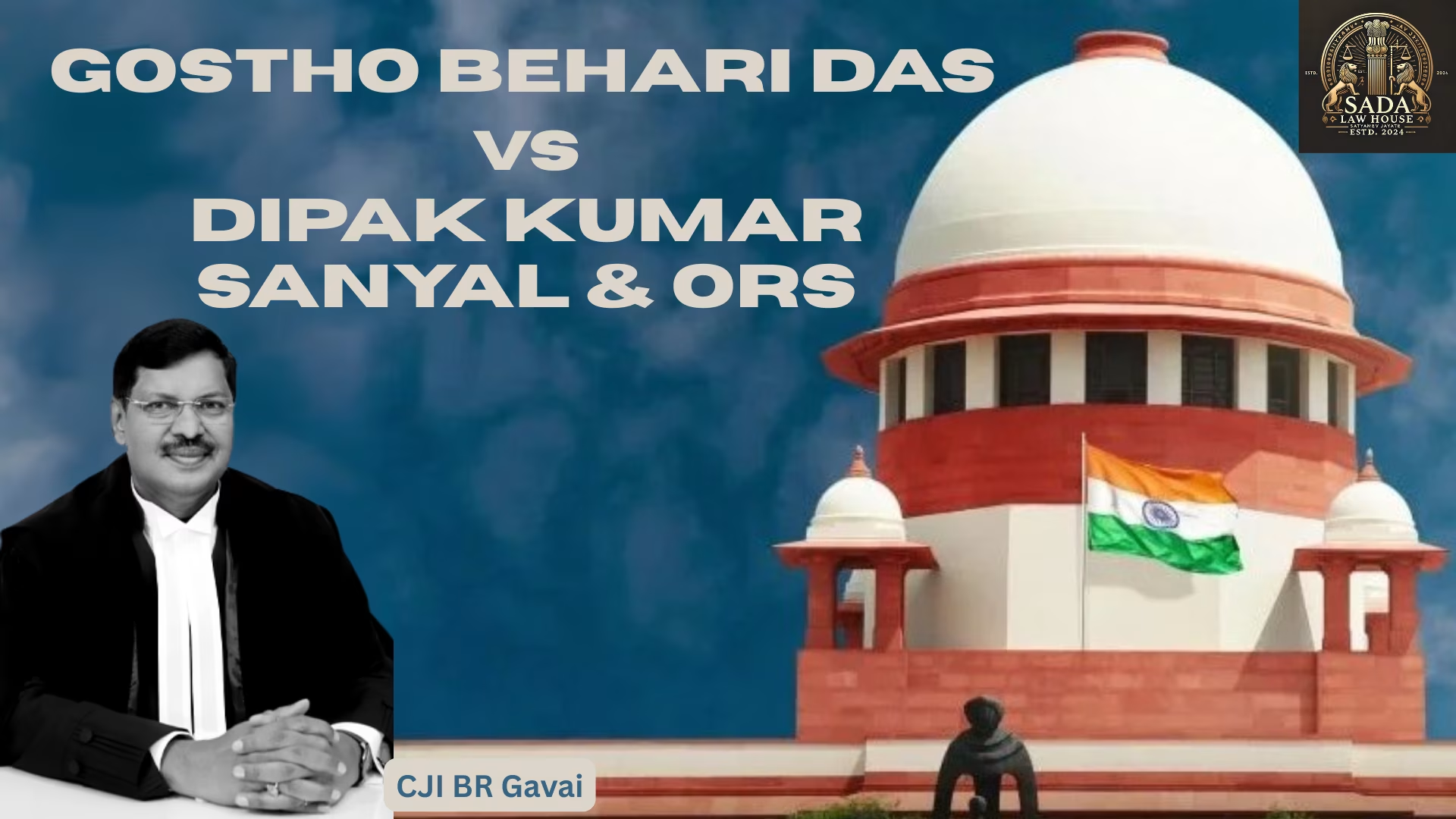Determination of Ownership Rights in Adverse Possession: Gostho Behari Das v. Dipak Kumar Sanyal & Ors. (2023)
- REHA BHARGAV
- Sep 27, 2025

On July 28, 2023, the Supreme Court of India dismissed the claim of adverse possession in Gostho Behari Das v. Dipak Kumar Sanyal & Ors.. The Court clarified the strict requirements for proving adverse possession over immovable property, reinforcing the principles of property rights under the Limitation Act.
Introduction
The case of Gostho Behari Das v. Dipak Kumar Sanyal & Ors., decided on July 28, 2023, centered on a dispute over ownership and possession of immovable property. The appellant, Gostho Behari Das, claimed ownership through adverse possession, while the respondents—legal heirs of the original owners—contested this claim.
The Court was tasked with examining whether long-term possession amounted to adverse possession under Indian property law, and whether the appellant could extinguish the rights of the true owners.
Facts of the Case
- The dispute involved immovable property allegedly possessed by the appellant for decades.
- Gostho Behari Das argued that his possession was open, continuous, and hostile to the true owner’s rights.
- The respondents, led by Dipak Kumar Sanyal, claimed that the appellant was merely a permissive occupier or licensee.
- Lower courts had ruled against the appellant, prompting an appeal to the Supreme Court.
Issue of the Case
The central issue before the Court was:
Whether the appellant, Gostho Behari Das, had acquired valid ownership of the property through adverse possession, thereby extinguishing the title of the original owners and their legal heirs?
Arguments
Appellant’s Arguments
- Continuous, open, and hostile possession for decades amounted to ownership.
- Improvements and acts of ownership were exercised publicly, putting true owners on notice.
- Respondents failed to assert ownership or initiate proceedings within the statutory limitation period.
- Once perfected, adverse possession confers legal title under precedents of Indian property law.
Respondents’ Arguments
- The appellant’s possession was not hostile but permissive.
- Long-term possession alone does not equal adverse possession without clear hostility.
- The appellant failed to produce conclusive evidence of hostile occupation.
- The burden of proof lies with the claimant of adverse possession, which was not met.
Judgment
The Supreme Court dismissed the appeal, ruling in favor of the respondents. Key observations included:
- Strict Proof Required: Adverse possession must be actual, open, continuous, exclusive, and hostile for the entire statutory period.
- No Hostile Intent: The appellant’s possession was ambiguous and lacked the necessary hostility to defeat ownership.
- Mere Occupation Insufficient: Passive or long-term possession does not extinguish the title of the lawful owner.
- Burden of Proof: The claimant must establish all ingredients of adverse possession beyond doubt.
Thus, the Court reaffirmed that adverse possession cannot be lightly presumed and must be proven with clear, cogent evidence.
Conclusion
The Supreme Court’s decision in Gostho Behari Das v. Dipak Kumar Sanyal & Ors. underscores the narrow and cautious application of adverse possession. It highlights that:
- Ownership rights cannot be defeated by mere inaction of the true owner.
- Adverse possession requires hostility, exclusivity, and continuous possession.
- Passive or permissive occupation does not qualify as adverse possession under the Limitation Act.
This judgment strengthens the protection of property rights in India and reiterates that courts will strictly scrutinize claims of adverse possession.
Case Laws






